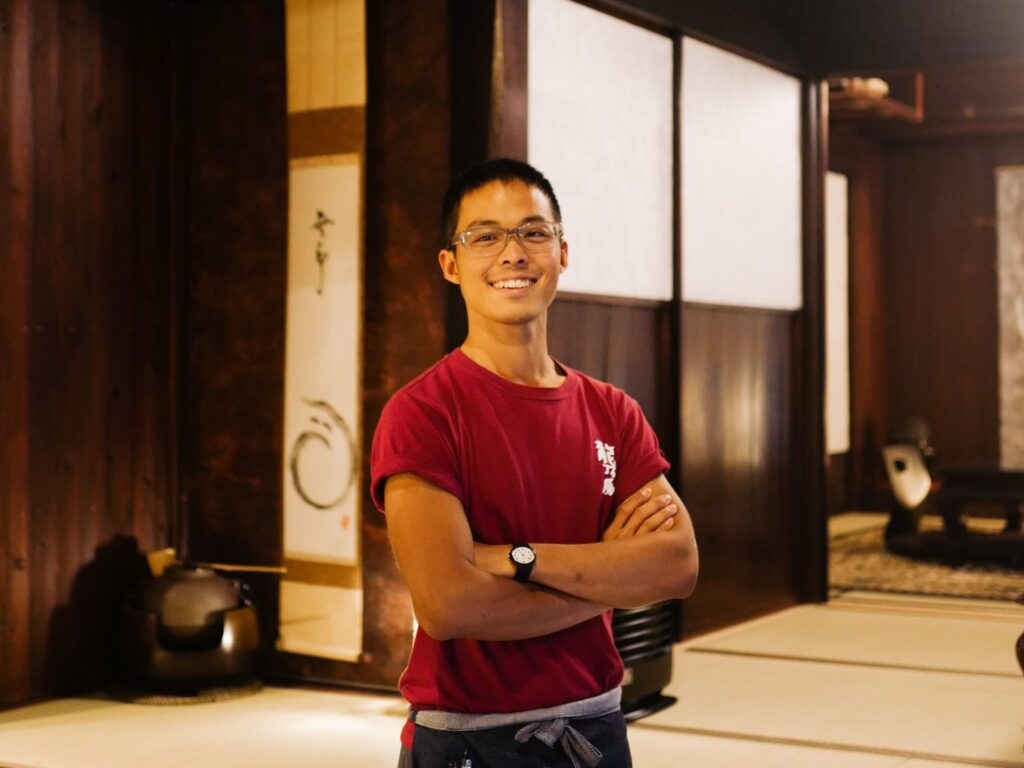- After studying in Japan, Xian Jie Lee moved to a village called Ryujinmura in the mountains.
- He rented a farmhouse and renovated it to live in then purchased the house next door to list on Airbnb.
- The guesthouse now rents for $190 a night and he offers tours to his visitors for $40 to $270.
Singaporean Xian Jie Lee, 33, moved to Japan in 2012 to study political science. He loved the country so much that he decided to stay, and he started a desk job at an IT company.
Within a few months, Lee realized he was unfulfilled and quit to start a tour guide company with a friend called Craft Tabby. While running that in Kyoto, Lee met 72-year-old tea master Shu at a tea festival.
Shu served Lee some wild tea he’d picked in the Wakayama mountains and Lee was amazed by how good it tasted. “It was so full of energy,” Lee told Business Insider.
Shu suggested Lee visit Wayakama. When he visited, Lee was blown away by the forests of cedar trees, waterfalls, and steep hillsides that were draped with mist. When the pandemic struck, Lee knew exactly where he wanted to go.
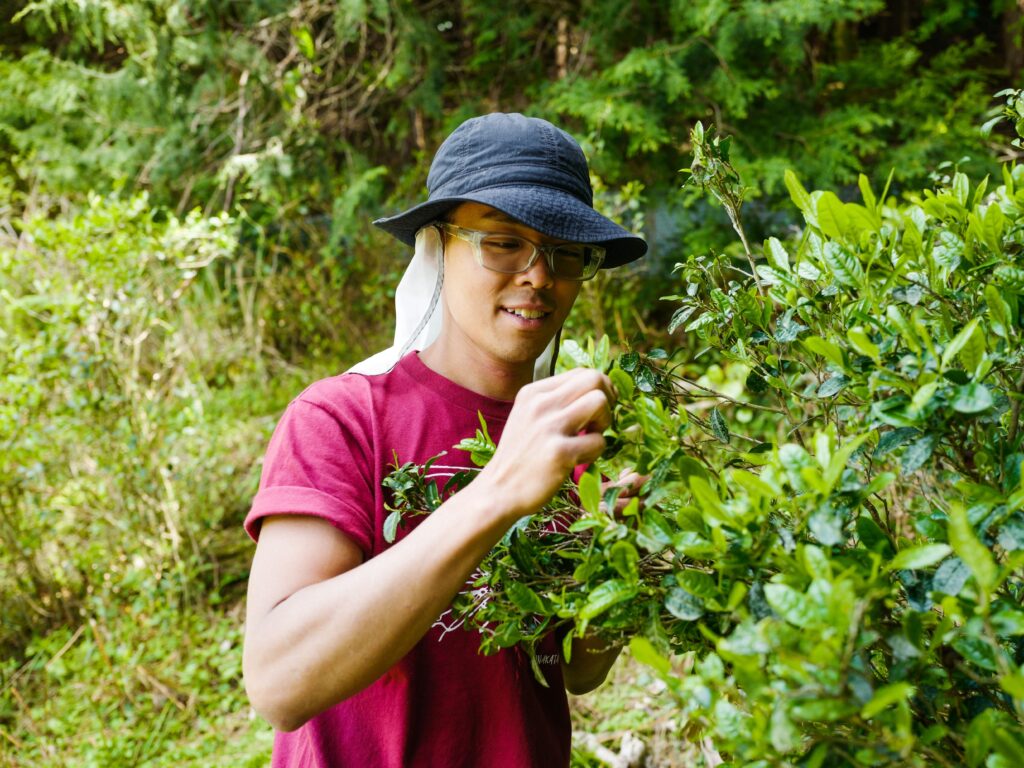
Shu told Lee that he could rent a farmhouse in a village called Ryujinmura. He would need to renovate it himself to live in it, but Lee knew the cost of the rent and renovation would be similar to what he paid to rent his apartment in Kyoto.
In December 2020, Lee moved and became one of the youngest residents in the village.
Renovating the rental
Lee loved the farmhouse with its thatched roof and sliding wooden doors, but he soon learned the renovation would be more challenging than he first thought. “I removed the tatami (traditional straw floor covering) in the inner room and fell through the floor,” Lee said.
As Shu grew up in the area, he knew of a carpenter who’d once worked with his father. The carpenter was delighted that Lee wanted to return the farmhouse to its former glory, so while he said he’d charge for his son’s labor, he worked for free.
The carpenters helped demolish and remove the old wood and redo the entire floor. Lee lived in the irori (hearth room) for three weeks while the wooden floors were installed. Then he switched rooms and they renovated the kitchen and bathroom.
It was Lee’s home, but it became a community project
Shu introduced Lee to the local charcoal maker, who provided charcoal for his fire, and the paper maker, who made all the traditional washi from mulberry trees for the shoji screens.
Once the house was finished, Lee started to clear the overgrown land. He replanted the rice fields, cleared the tea bushes of weeds, and started to grow corn and tomatoes.
While the neighbors shared tips on how to grow the crops, Lee still had a few learning curves. Holes in his fence allowed wild deer to help themselves to the heirloom rice plants, and when he tried to fix the pipes that fed the rice fields with mountain water, an error meant he had to hike up the steep hillside to fix them a second time.
Lee was a fast learner, and some of his neighbors asked if he could also manage their rice fields. Lee’s friends from Singapore would often visit to help. He also started posting on YouTube, and some people who watched the videos volunteered to help him, too.
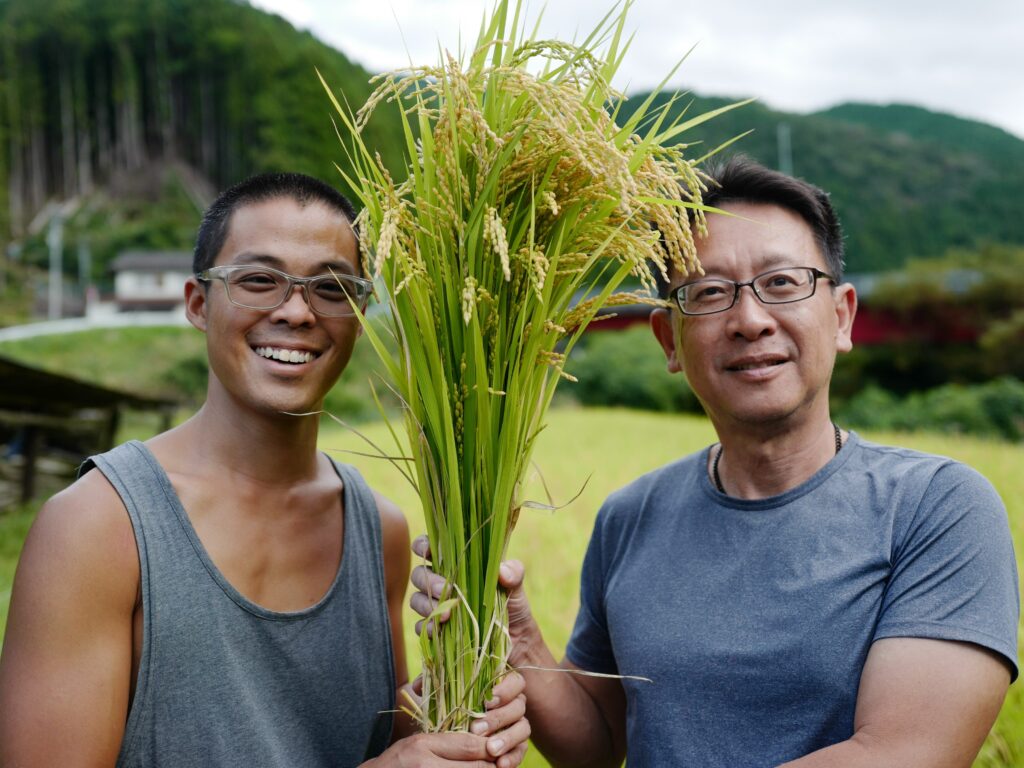
Creating a new life and business in the mountains
Lee thought he’d split his time between the mountains and Kyoto. “I started liking this place more and more and these days, I seldom return to Kyoto,” Lee said.
He knew that if he were going to stay, he’d need to expand the tour business. “I thought that if I had a guesthouse, I could run tours from here,” Lee said.
The owner of the empty 120-year-old farmhouse next door to Lee’s rental agreed to sell it to Lee and two of his friends. The second house also needed repair, and its purchase and renovations cost $25,000 in total.
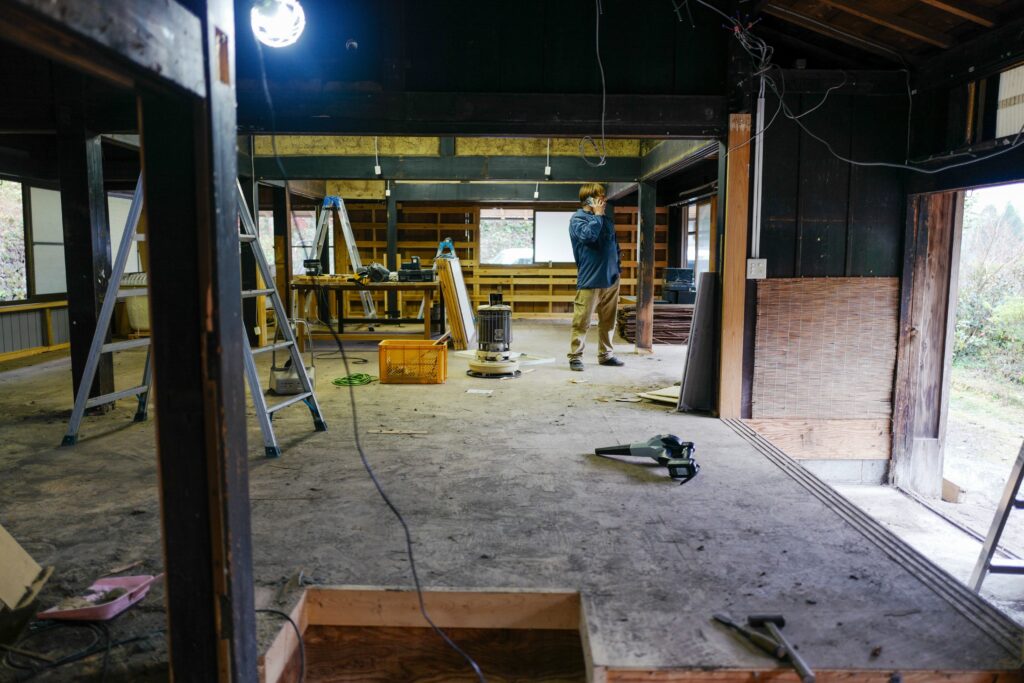
Lee paid for a craftsman to reinstall a sunken hearth in the floor at the center of the house, while another craftsman created handmade shoji screens. Since they intended to use it as a guesthouse for up to five people, they decided to install a wooden floor rather than tatami mats.
Lee and his guests both enjoy unique experiences
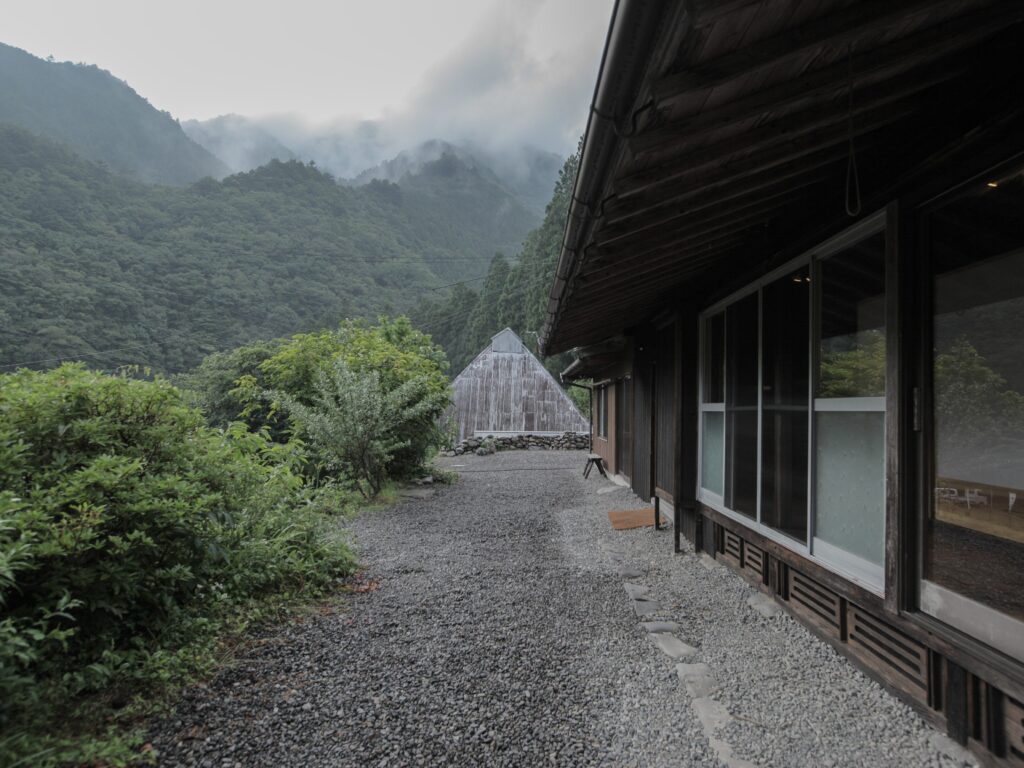
While renovating the guesthouse, Lee turned his own home into a café three days a week to earn extra income. He served dishes to hikers who had been enjoying the trails. “It was quite tough because I was dealing with the renovations and planting rice while running the café,” Lee said.
When Lee listed the farmhouse on Airbnb in August 2023, he closed the café, but then reopened it and now serves food once again to visitors.
Guests renting the two-bedroom guesthouse for $190 a night can meet the resident goats and Ryujin chickens, borrow a paddleboard, or swim down the Hidakagawa River in front of the farmhouse.
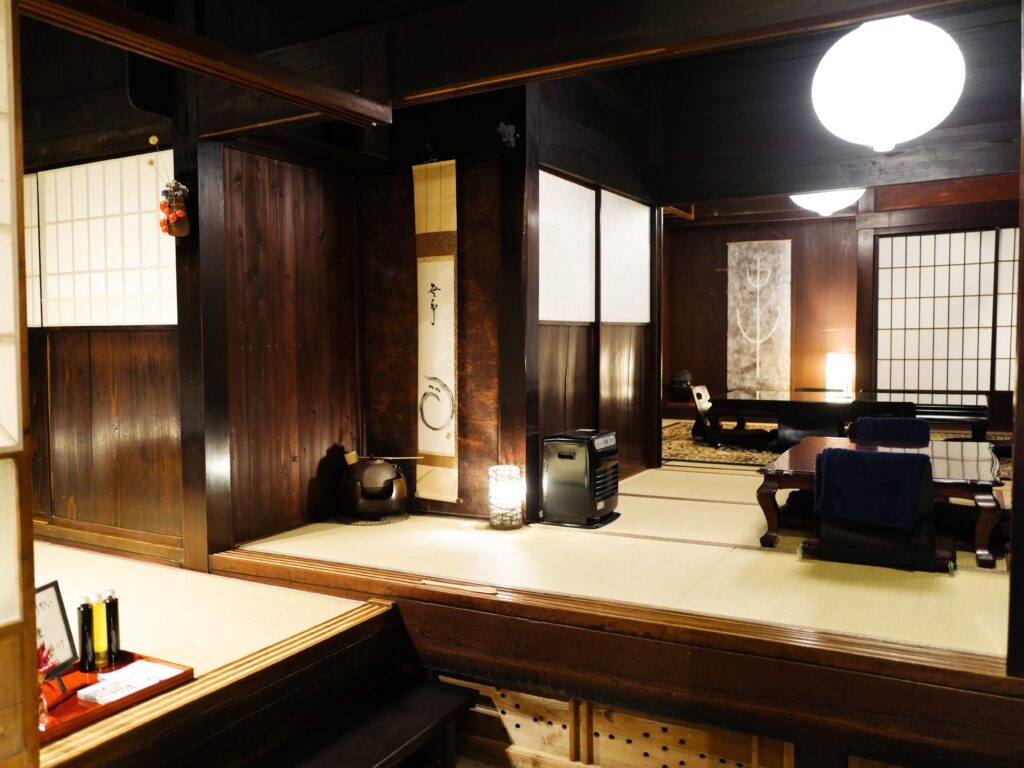
Lee also offers tours to his guests priced from $40 to $270 where you can hike to six secluded waterfalls, take a traditional washi paper-making class, or participate in a tea-making workshop.
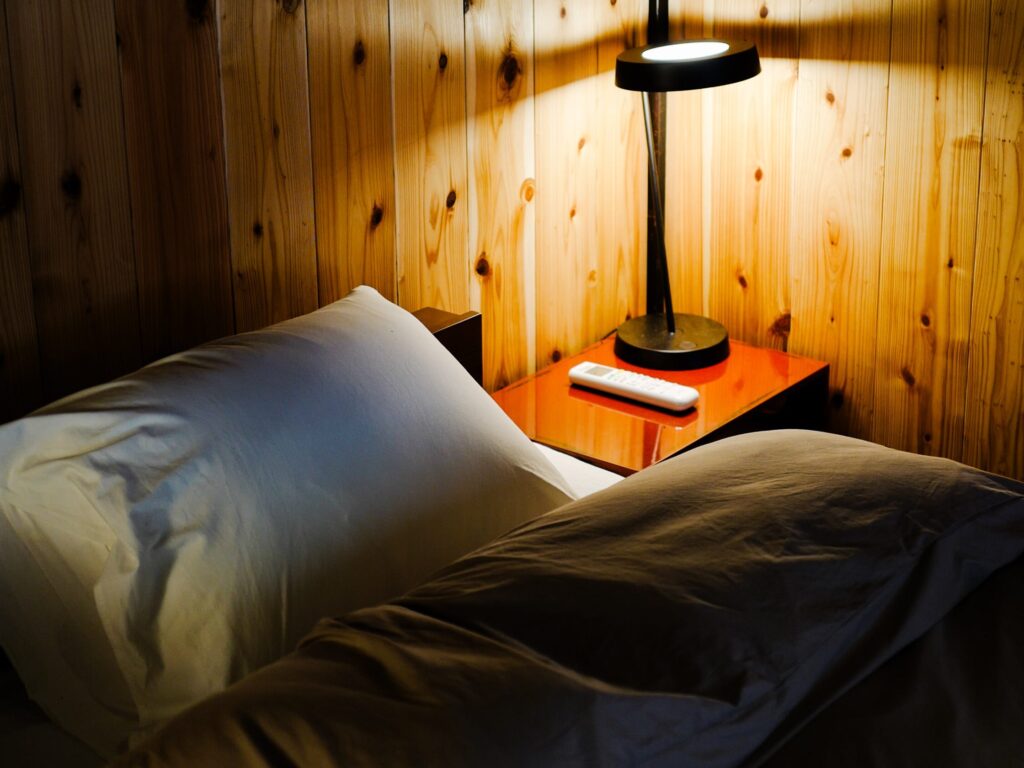
Lee has also been able to participate in unique experiences himself. He and some of the volunteers were recently invited to take part in the lion dance at the local harvest festival. "We didn't know what we were doing, but the neighbors helped show us what to do," Lee said.
The villagers were thrilled they'd taken part. "The most surprising thing for me was how open everyone was to have us involved," Lee said. "Then also when they told us how happy it made them."
